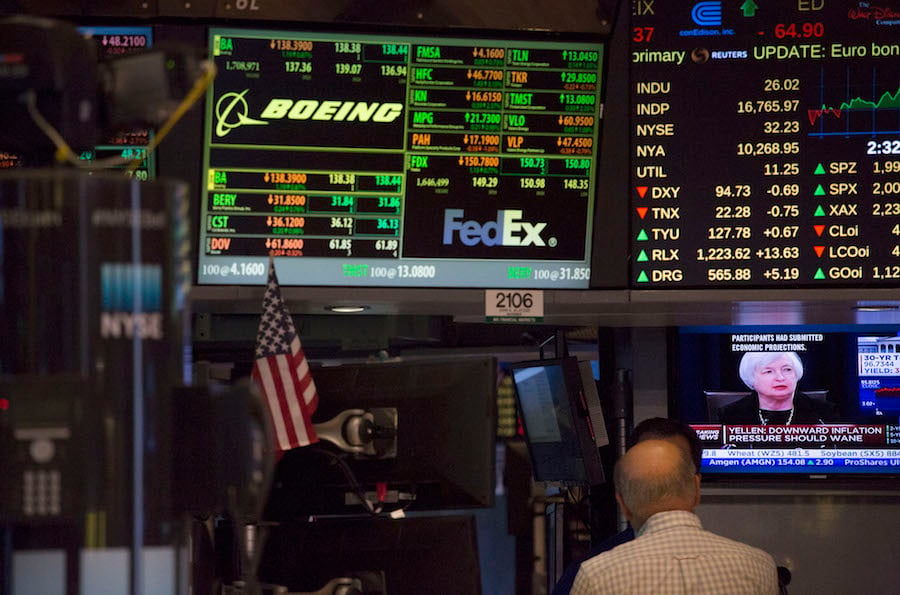The year's strongest week for equities was followed by one of its quietest, with energy stocks underpinning microscopic gains in a holiday-shortened week as investors kept their focus on the Federal Reserve.
The year's strongest week for equities was followed by one of its quietest, with energy stocks underpinning microscopic gains in a holiday-shortened week.
Stocks moved the smallest amount since July as the Thanksgiving holiday damped trading following the previous week's 3.3% surge in the S&P 500 Index. Mixed economic results and geopolitical unrest did little to sway equities ahead of next week's jobs report and a Federal Reserve meeting scheduled to conclude on Dec. 16.
The S&P 500 rose 0.04% in the 3 1/2 days to 2,090.11, its eighth gain in nine weeks. The gauge closed 1.9% below its May peak and, with one day left in November, is up 0.5% for the month after rallying 8.3% in October.
http://www.investmentnews.com/wp-content/uploads/assets/graphics src="/wp-content/uploads2015/12/CI1026991128.PNG"
Volume was light as investors honed their focus on the future of monetary policy in the U.S., said David Donabedian, chief investment officer of Atlantic Trust Private Wealth Management, which oversees $27 billion. “The market continues to come to peace with the idea that the Fed will do its first increase in mid-December.”
Compared with where they were leading up to the last Fed meeting in October, equities are in a much improved state. At the start of that month, the S&P 500 was still down 8.6% from its August high, while the Chicago Board Options Exchange Volatility Index was at 22.55. Three weeks ahead of the forthcoming meeting, shares in the benchmark gauge are back in the range they were trading weeks before the correction started and the VIX has retreated back to 15.12, just above its pre-selloff average of 14.9.
Still, it's not like investors have made up their minds about the future. The S&P 500 has alternated gains and losses over the last nine straight sessions, the longest such streak since 2013.
http://www.investmentnews.com/wp-content/uploads/assets/graphics src="/wp-content/uploads2015/12/CI1027001128.PNG"
Companies with a heavier domestic revenue stream are the likeliest to do well amid economic reports that show positive U.S. growth &mdash or at the very least, “numbers that aren't near as bad,” said Tom Stringfellow, president and chief investment officer of San Antonio, Tex.-based Frost Investment Advisors, which manages about $11 billion. “What's really getting a bid right now are those companies that are less impacted by dollar strength overseas.”







